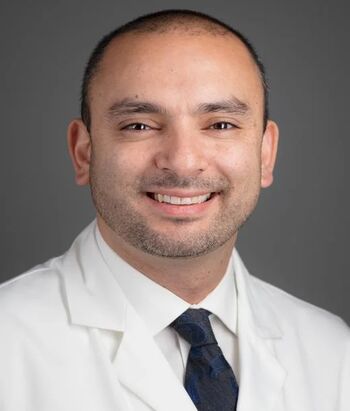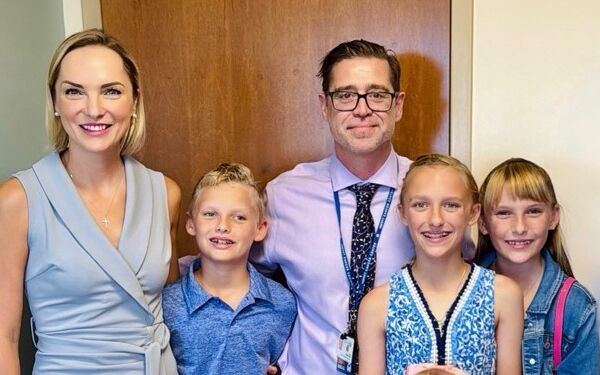Appendix Cancer Cases on the Rise Among Younger Generations
For years on end, 40-year-old Tatiana struggled with nausea, bloating, stomach pain and other gastrointestinal issues. Despite seeking an opinion from multiple doctors, she was left with unanswered questions.
“Everyone told me that my persistent symptoms could be explained by something benign,” she said. “After all, how could a healthy 30-something-year-old woman with no comorbidities, who exercised five times a week and wasn’t a smoker or heavy drinker have anything seriously wrong?”
Fast forward to 2023 when Tatiana went into surgery for a hernia repair, thinking it was going to be a quick and straightforward procedure.
“I woke up from anesthesia to find my surgeon looking perplexed and concerned,” she said. “He told me that he couldn’t perform the hernia repair because when he opened me up, he said he ‘saw lots of cancer.’”
Extensive Surgery
The cancer the doctor was referring to turned out to be pseudomyxoma peritonei, a rare type of cancer, typically found in the appendix.
This diagnosis led Tatiana to Moffitt Cancer Center, where she underwent extensive surgery, removing multiple organs and tissues. A year and a half post-surgery, her scans show no evidence of a cancer recurrence.
“Recovery has been a long journey, and each day still brings its own challenges, but I am so grateful to be here,” she said.
Detection Is Challenging
According to a recent study published in the Annals of Internal Medicine, appendix cancer cases have tripled among Gen X (those born between 1965 and 1980) and quadrupled among millennials (those born between 1981 and 1996). During the study, researchers used information from the National Cancer Institute’s database.
Iman Imanirad, MD, a gastrointestinal oncologist at Moffitt, says appendix cancer is challenging to detect, especially in early stages.
“There is no screening mechanism for appendix cancer,” Imanirad said. “In fact, even a colonoscopy has a low sensitivity to detect appendix cancers.”

Imanirad says that when appendix cancer is found, patients can have symptoms similar to those of appendicitis.
“Those symptoms can be abdominal pain that starts near the belly button and shifts to the lower right side in more acute cases, or sometimes with bloating, nausea and loss of appetite in cases of slowly spreading disease in the abdominal cavity,” Imanirad said. “Once we take a look at the materials under the microscope, it turns out to be cancer.”
‘Listen To Your Body’
Tatiana wants her cancer journey to serve as a reminder for others who are young and healthy to be advocates for their health.
“My biggest message is to listen to your body,” she said. “If something feels off, don’t ignore it. Keep advocating for yourself until you find answers. No one knows your body better than you do.”




